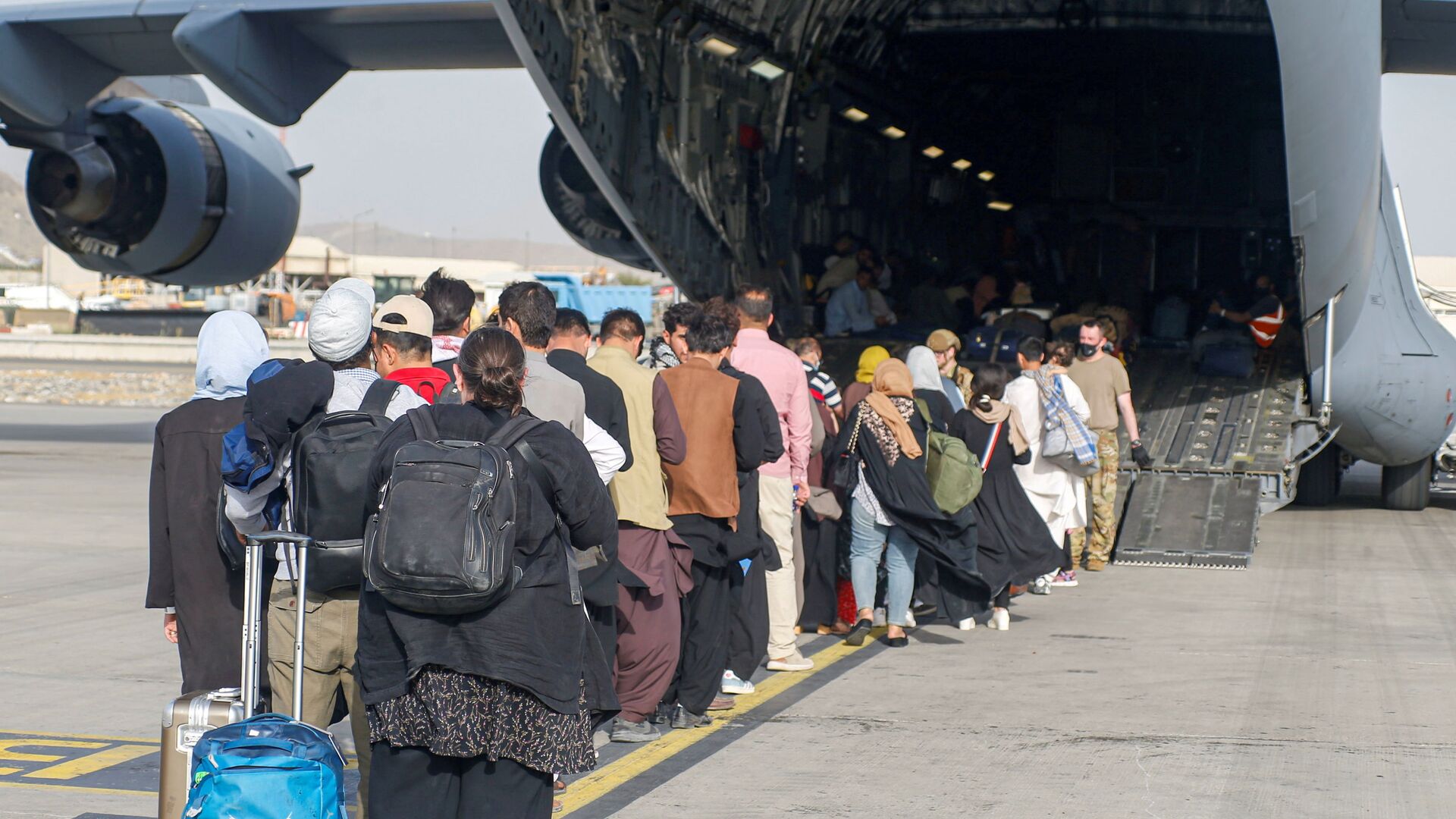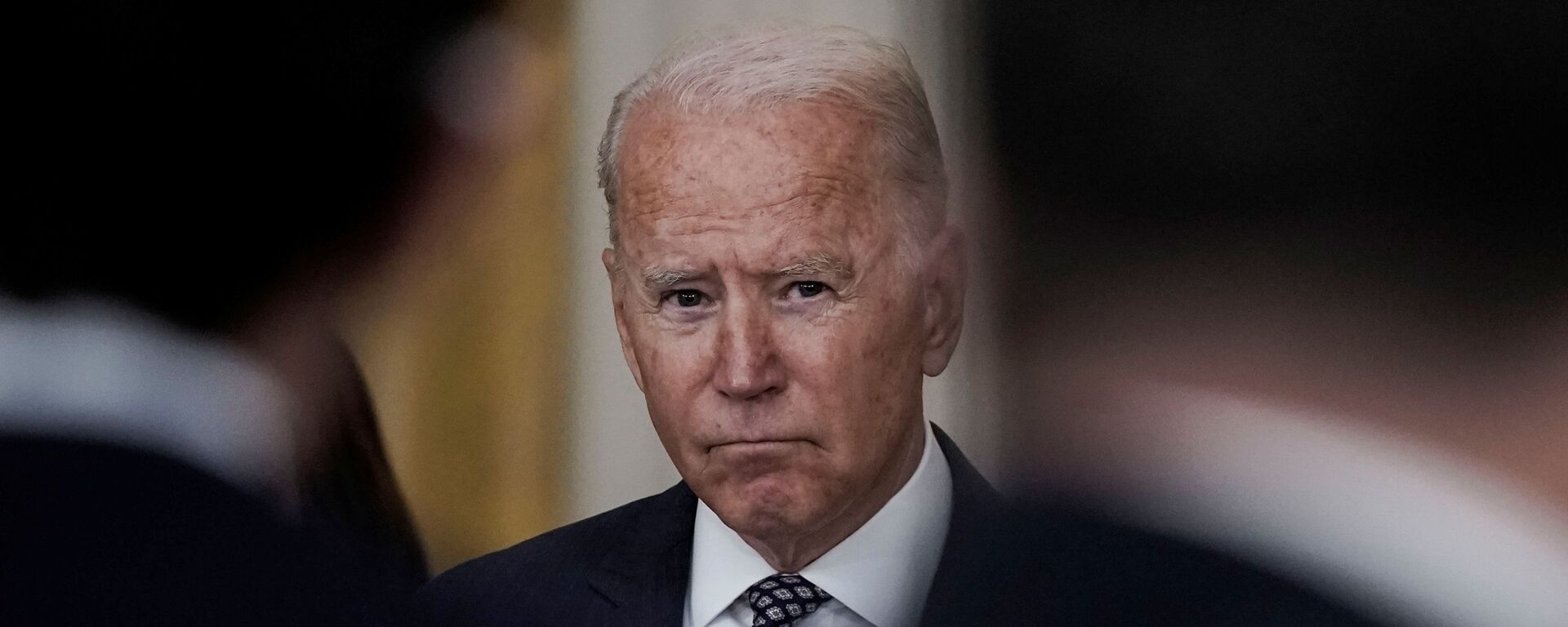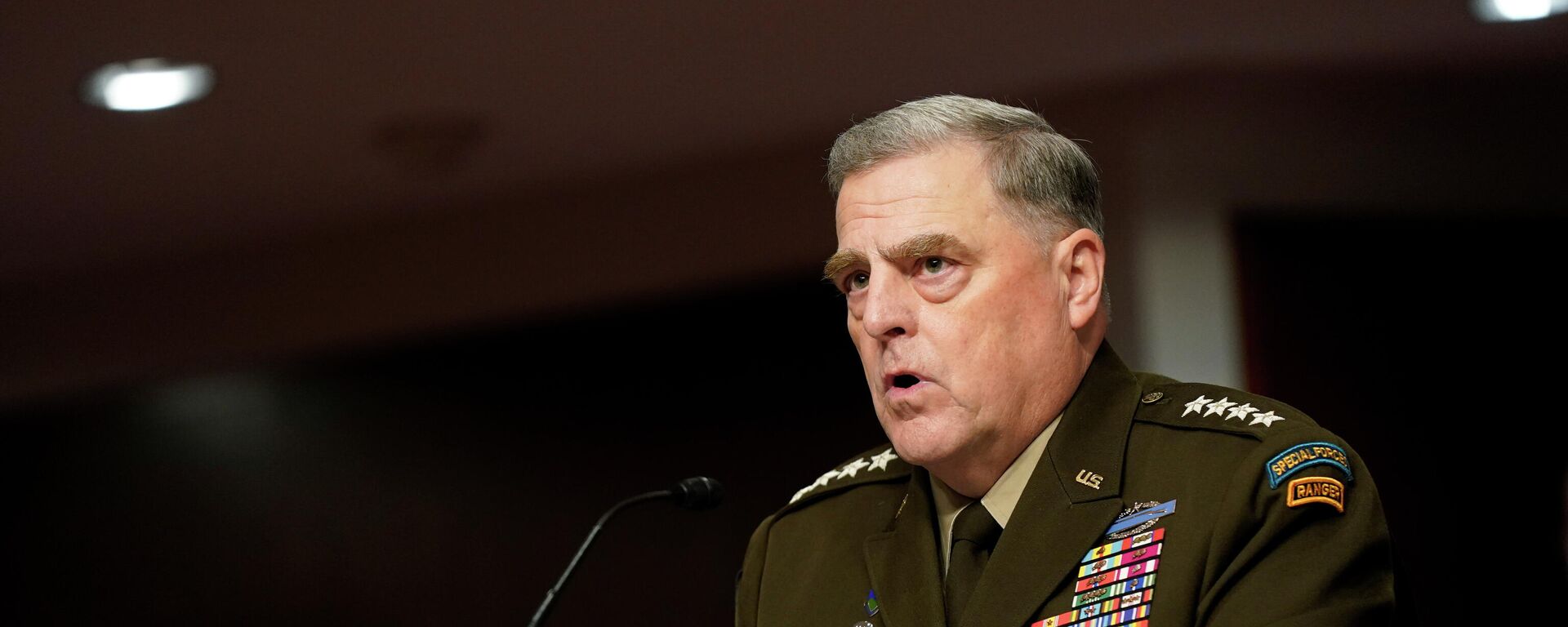Female Afghan Student Struggles With Ethnic Tensions After Safe Evacuation to US

© REUTERS / US MARINES
Subscribe
MOSCOW (Sputnik), Tommy Yang - A female Afghan student that was evacuated to the United States amid mayhem, has told Sputnik that she was haunted by ethnic tensions and stereotypes she thought she left behind in her home country during her stay at the US military base Fort McCoy in Wisconsin.
After spending a whole academic year taking online classes due to the COVID-19 global pandemic, K., who only wished to be identified by the first letter of her name, was filled with excitement when she was about to catch a charter flight in mid-August from Kabul to return to the Asian University for Women in Bangladesh to start her junior year.
Unfortunately, her plan for the new academic year was completely disrupted when the Taliban* seized Kabul on August 15 and took over the country shortly afterwards. K and the group of about 250 female Afghan students had to abandon their plan to return to their university in Bangladesh. Instead, they were evacuated to Fort McCoy in Wisconsin.
"We were supposed to go to Bangladesh and our university had arranged a charter flight for us from the Kabul airport. But we missed the charter flight because the Taliban took over the airport. We were stuck in the airport for a long time. Then the US military arranged another charter flight that took us to Fort McCoy," K told Sputnik.
Hazaras VS Pashtuns
When the Taliban took over the airport in Kabul in August, a large number of Afghans risked their lives trying to flee the country, with some of them clinging to the wings of a US military aircraft and falling to their death. K and the group of female students from to the Asian University for Women saw themselves as the lucky ones compared to those desperate Afghans who could not be evacuated from Kabul.
However, after living in the Fort McCoy for more than three months, K’s life in the US military base was far from trouble free. Despite being thousands of miles away from Afghanistan, the same kind of tensions between different ethnic groups appeared to have "traveled" with K to Wisconsin.
As a member of the Hazara ethnic group from Afghanistan, K had to continue to face insults from Afghan evacuees who were from the dominate Pashtun ethnic group.
"I am a Hazara and here are a lot of Pashtun people. They treat us very badly whenever they see us. Most refugees are Pashtun in here", K said.
Ethnic tensions between the Hazaras and Pashtuns in Afghanistan started as early as the 19th century. The Hazaras are considered as one of the most oppressed ethnic groups in Afghanistan and many Hazaras were prosecuted because of their physical features that bear semblance to people from East Asian countries.
K explained that the Pashtun Afghans at Fort McCoy picked on her exactly because of her appearance.
"They say: ‘why you are here? Instead of the US, you have to go to Iran or China.’ They call us Chinese because we look like Chinese," she said.
K had expressed her concerns to the staff members at Fort McCoy. Fortunately, she did not have to share the same room with the Pashtuns. The Hazaras and the Pashtuns were housed separately in the military base. She only had to face such comments when she went to the common areas such as the dining hall.
According to K, there are about 13,000 Afghan evacuees at Fort McCoy and about 2000 of them are Hazaras. She shares a big room that houses 30 single women like herself. Her room is on the second floor of a two-story building. As most of her roommates are fellow students from her university, they have always offered her emotional support.
Start Over University Education
In addition to dealing with ethnic tensions at Fort McCoy, what worried K more was her future plans.
After majoring in economics for two years at the Asian University for Women, K’s original plan was to pursue a Master’s degree at a Western university in the United Kingdom or the United States upon graduation.
However, her evacuation to Fort McCoy made it impossible for her to continue her education at the Asian University for Women. Although she had received a full scholarship from the prestigious Brown University in Rhode Island, it was only for a one-year English language training program. If she wanted to pursue a Bachelor’s degree at Brown University, she had to start over at the age of 24.
"It was my dream to study in the US and apply for scholarship for my master degree in the US, but not like this, when suddenly the Taliban took over my country. I will start over again [at the Brown University]," she said.
As K was the only one from her family who was evacuated from Afghanistan, she also has to face the harsh reality of not being able to meet her family members in the foreseeable future.
"Of course, I am worried. I know that I can't visit my family for about 5 years or even more than that," she said.
K has five brothers and one of them worked for the US forces for many years. She expressed grave concerns about the safety of her family in Kabul.
"My family is happy about me [being able to escape]. But they are really in danger because my brother has worked with American Forces and his life is in danger now. He has applied for a special immigrant visa for the US, but he’s stuck in Kabul," she said.
In the immediate future, K hopes she could complete the process of moving from Fort McCoy to the Brown University this week, and leave the ethnic tensions behind her for good.
*The Taliban is a terrorist group banned in Russia and many other countries.




